
2030 Agenda
No. 2 Vol. LV 2018This issue focuses on the 2030 Agenda for Sustainable Development, a plan of action for people, planet and prosperity, which commits United Nations Member States to work towards a sustainable future for all. The articles, by Senior Officials of the United Nations system, examine the Organization’s lead role in advancing the 2030 Agenda, and in promoting peace, social equality and human rights.
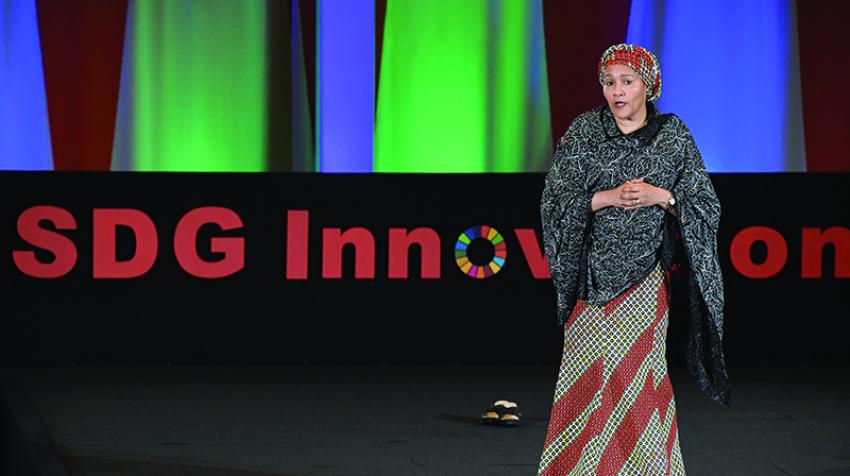
Participation, Consultation and Engagement: Critical Elements for an Effective Implementation of the 2030 Agenda
The 2030 Agenda for Sustainable Development and the 17 Sustainable Development Goals (SDGs) at their core are a groundbreaking, inclusive global initiative to eradicate poverty and achieve a better future for all on a healthy planet.
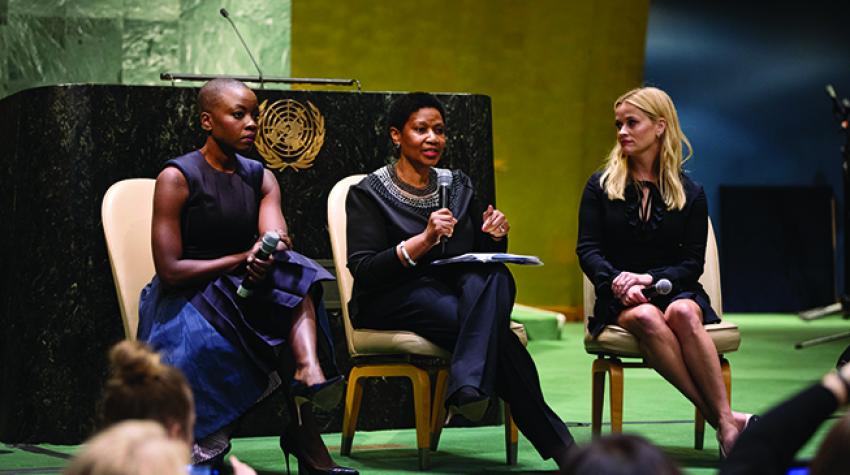
The #TimeIsNow for Solidarity and Sisterhood
In the nineteenth century, people around the world fought and defeated slavery. In the twentieth century, the struggle against racism and colonialism awoke the world's conscience again. The great challenge of the twenty-first century is embodied in the struggle against sexism, gender-based violence and all forms of oppression of women.
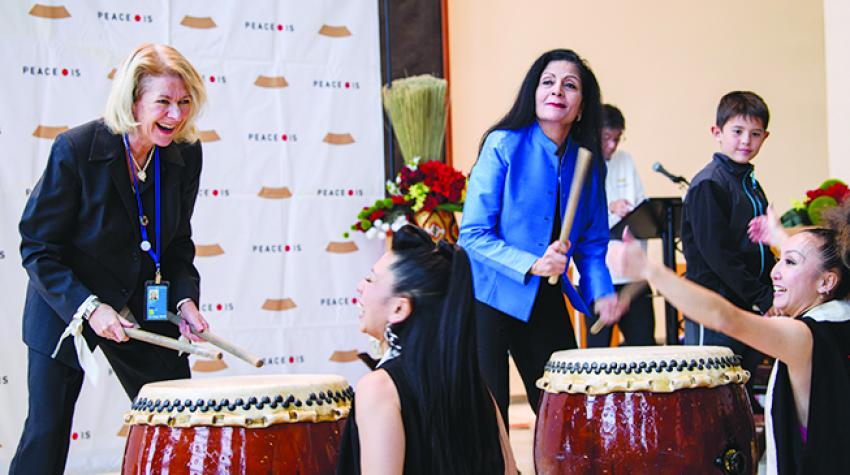
What the SDGs Mean
The Sustainable Development Goals (SDGs) define the world we want. They apply to all nations and mean, quite simply, to ensure that no one is left behind.
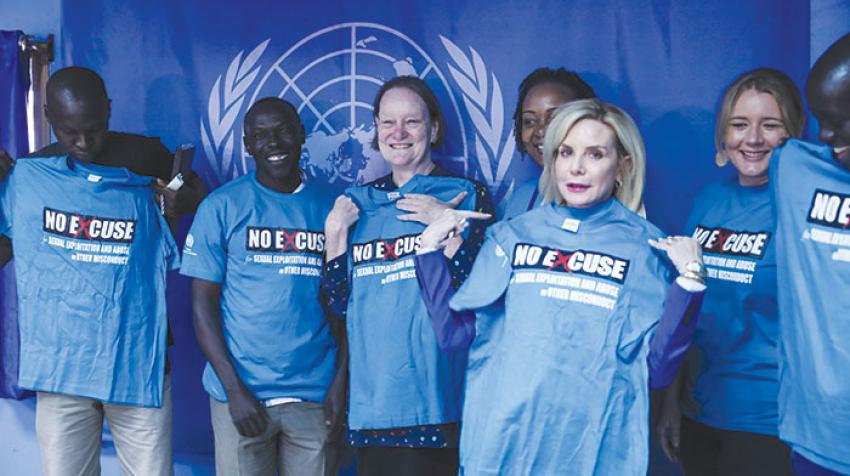
Upholding Our Values: Putting Victims at the Centre
I advocate within the United Nations system and among Member States, civil society and a broad range of other stakeholders to support an integrated response to victim assistance, so that it is rapidly and sensitively delivered; victims are respected, heard and listened to; their cases are taken seriously; and perpetrators are appropriately sanctioned.
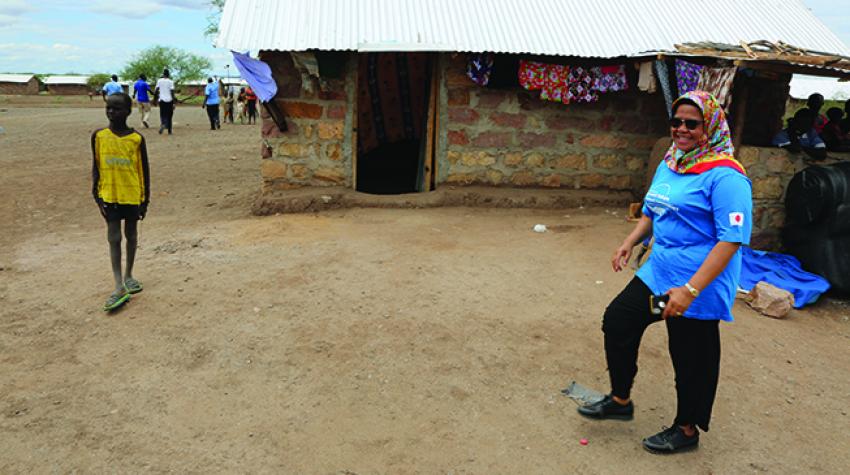
Promoting Sustainable Human Settlements: Its Relevance to the 2030 Agenda
UN-Habitat supports the achievement of SDGs in urban areas. The road map for doing so, the New Urban Agenda—UN-Habitat's framework for the realization of the transformative role of cities in sustainable development—was adopted at the Habitat III Conference in Quito, Ecuador, in 2016.
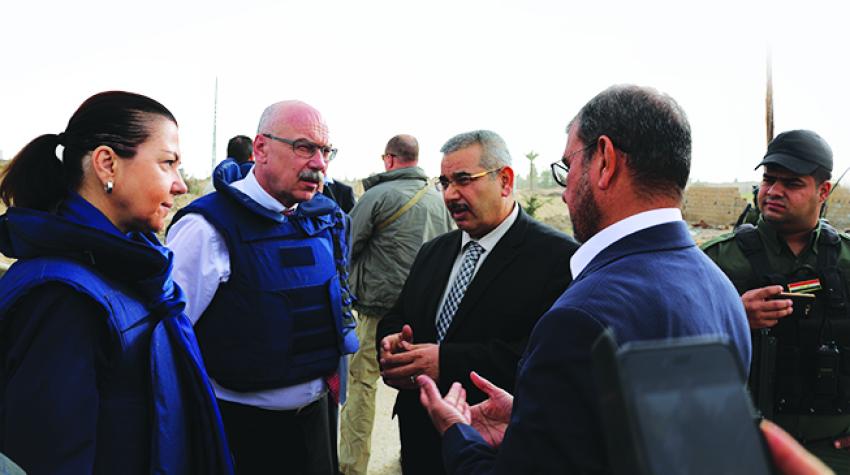
Tackling the World's Multiple Challenges Simultaneously: The Role of the United Nations
Terrorism is a plague from which no continent or country is immune. To address this global threat to peace and security, international cooperation is crucial. The United Nations is uniquely placed to assist Member States to effectively prevent terrorist acts within their borders and across regions. The multifaceted approach proposed by the United Nations also offers means for countries to address various but interconnected issues simultaneously.
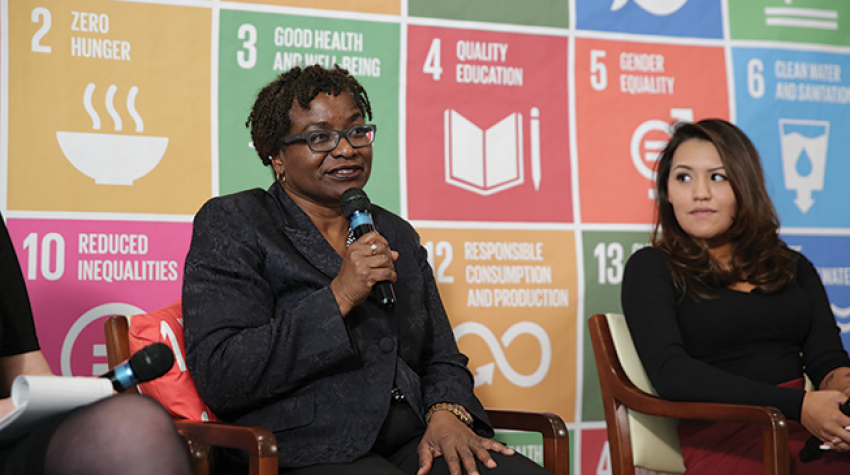
Sexual and Reproductive Health and Rights: The Cornerstone of Sustainable Development
Shortly after the Sustainable Development Goals (SDGs) were adopted in 2015, we spoke to 10 ten-year-old girls from around the globe, asking them what their one wish was. Their answers affirmed what the American poet Maya Angelou once wrote: We are more alike, my friends, than we are unalike.
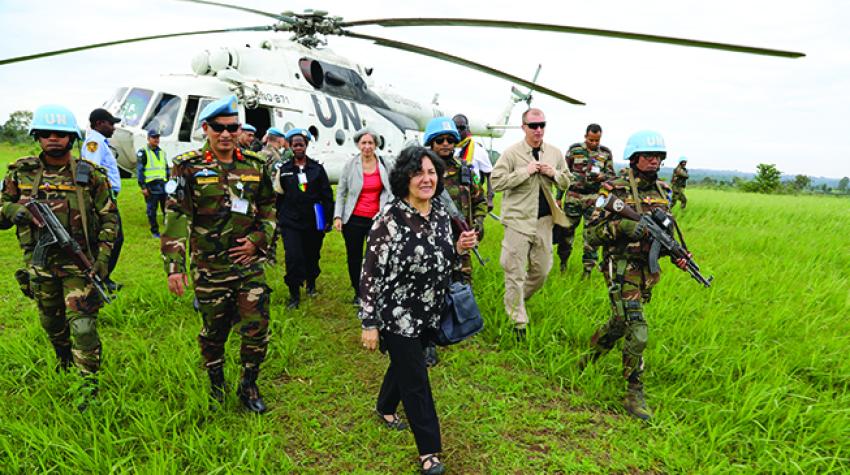
Strengthening the Rule of Law and Protection of Civilians in the Democratic Republic of the Congo
From its original focus on the military criminal justice chain, MONUSCO support is increasingly shifting to the civilian justice system. Our work has demonstrated how political engagement matched with technical and logistical support can contribute to the 2030 Agenda for Sustainable Development, enforcing laws that uphold justice and develop strong institutions for sustainable peace.
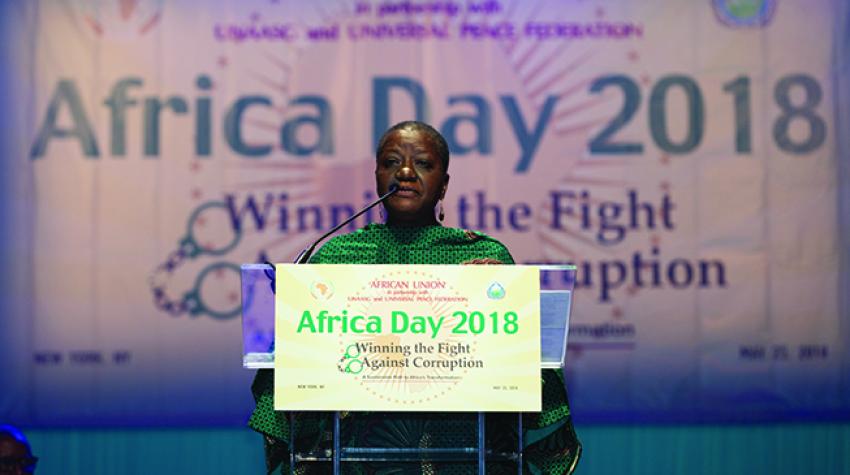
The Africa We Want: Facilitating the Coordination of International Support for Africa's Development, Peace and Security
The global 2030 Agenda for Sustainable Development and its Sustainable Development Goals were largely influenced by the Common African Position on the Post-2015 Development Agenda, through which African Member States negotiated in solidarity to ensure a comprehensive global agenda focused on structural economic transformation, inclusive growth, people-centred development and durable peace and security.
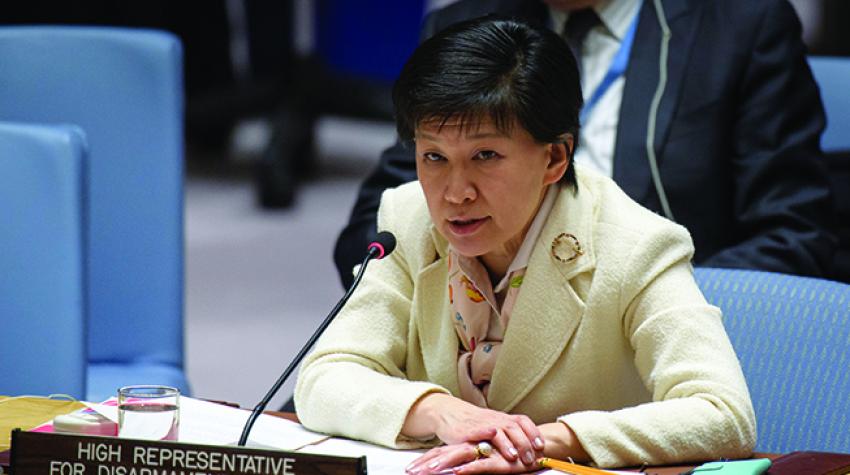
Advancing Disarmament within the 2030 Agenda for Sustainable Development
The 2030 Agenda and its Sustainable Development Goals (SDGs) provide a unique opportunity to revisit the historical relationship between disarmament and development. While SDG 16 on peaceful and inclusive societies, justice and strong institutions recognizes that durable peace and lasting conditions for security are necessary for long-term development, we need to better understand the diverse areas in which achieving disarmament objectives can contribute to the implementation of the SDGs.
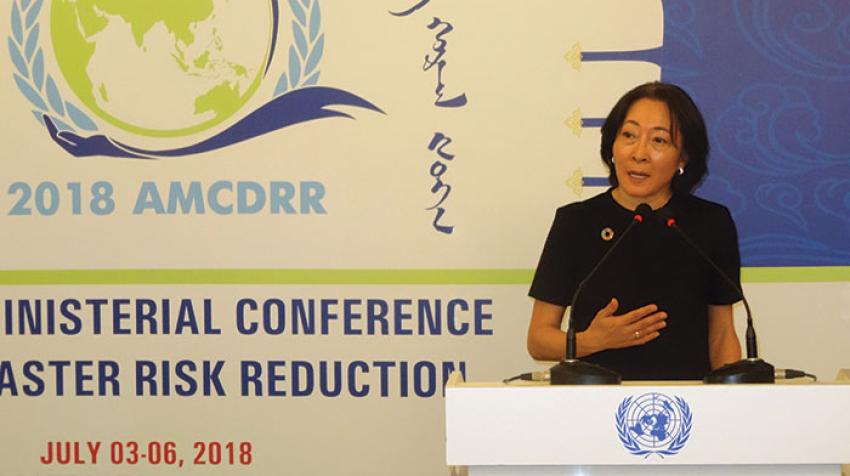
Economic Losses and Displacement Should Drive Disaster Risk Reduction Efforts
Governance is an area of great focus this year for the United Nations Office for Disaster Risk Reduction (UNISDR). Agreement on 38 indicators for measuring progress on reducing disaster losses and achieving the Sendai Framework's seven targets has led to a global surge in efforts to record disaster losses and analysis of disaster trends following the launch in March 2018 of the Sendai Framework Monitor. United Nations Member States are signing up quickly to use the Monitor and to report on their disaster losses, such as overall mortality, numbers affected, economic losses and damage to critical infrastructure.
Foreword
Given the changing world of media and global communications, we are reflecting on how best to serve the purposes for which this flagship publication was created more than 70 years ago.
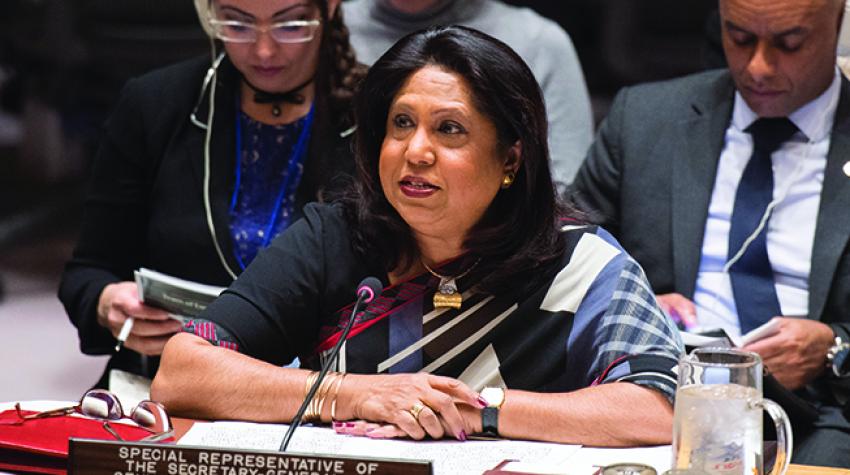
Ensuring That Survivors of Conflict-Related Sexual Violence Are Not Left Behind in the Sustainable Development Agenda
Today, the SDGs provide a comprehensive blueprint for addressing violence against women and enhancing peace and shared prosperity. The international community has set its sights on the year 2030 as the expiry date for gender-based inequality and violence in all its forms.
